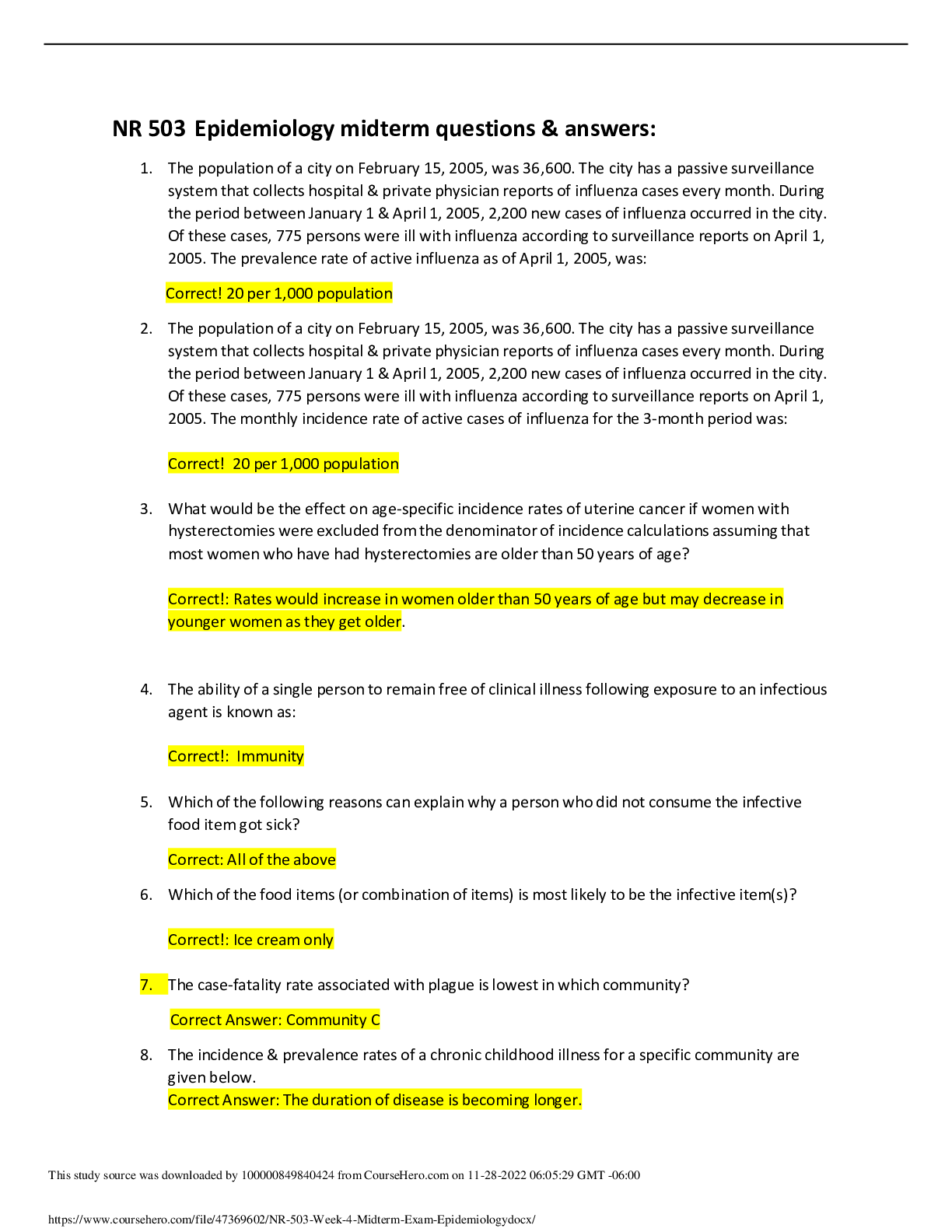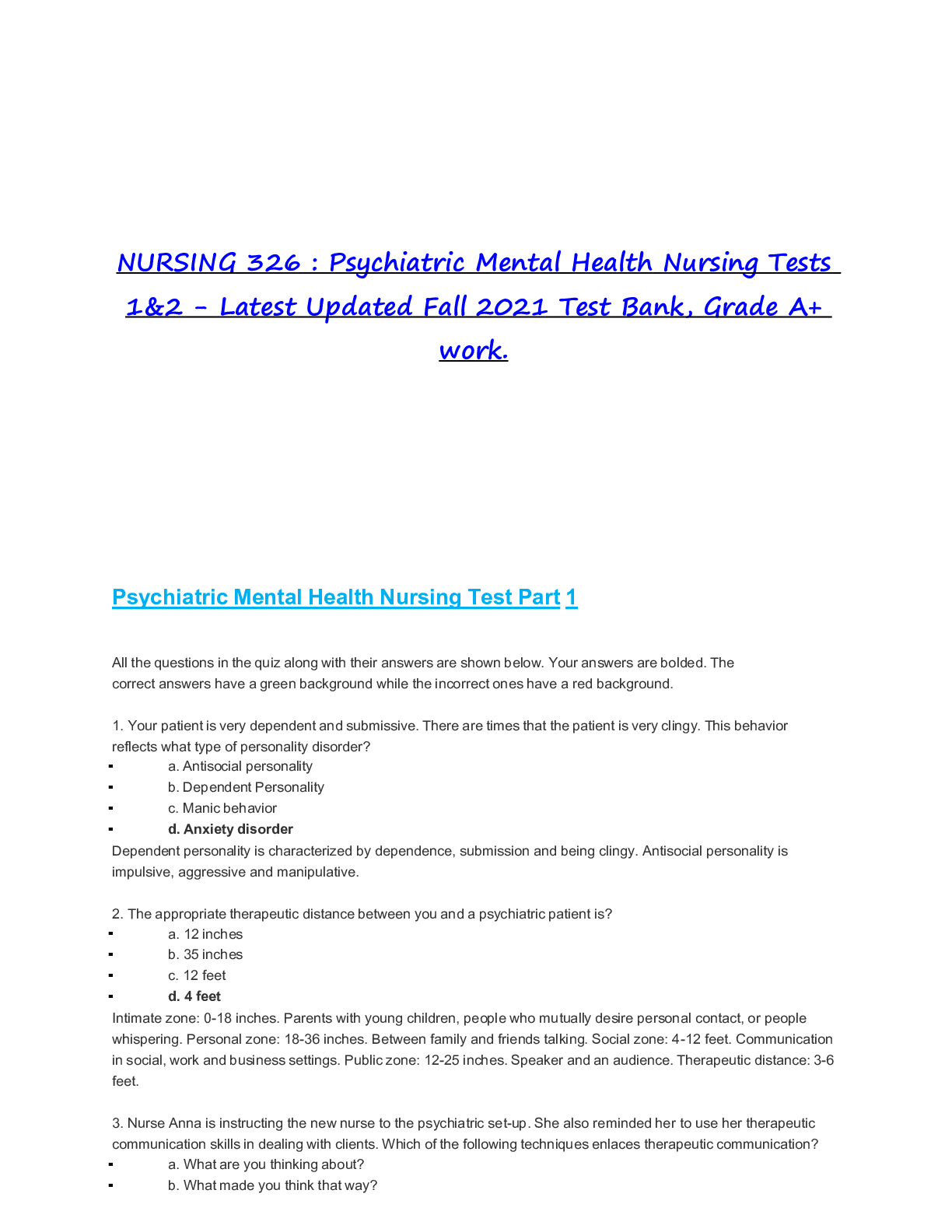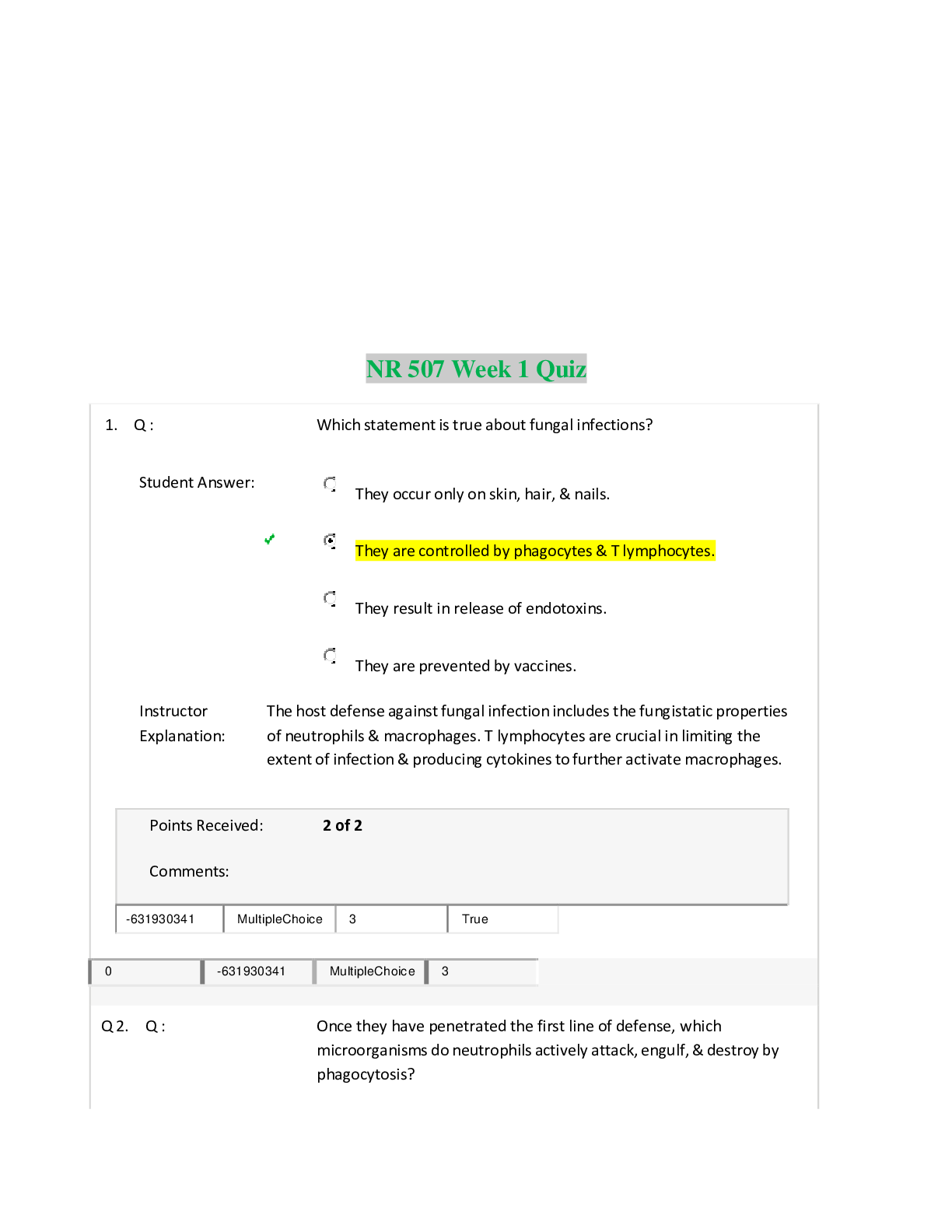Chamberlain College of Nursing | NR508 Midterm Exam Q&A With Rationales
Document Content and Description Below
Chamberlain College of Nursing | NR508 Midterm Exam Q&A With Rationales-A primary care NP prescribes levothyroxine for a patient to treat thyroid deficiency. When teaching this patient about the medic... ation, the NP should: tell the patient that changing brands of the medication should be avoided. Patients should be told not to change brands of the medication; there is potential variability in the bioequivalence between manufacturers. The medication should be taken at approximately the same time each day before breakfast or on an empty stomach. Patients should be instructed to contact the provider if signs of thyrotoxicosis are present. Thyroid replacement medications are usually given for life. An African-American patient is taking captopril (Capoten) 25 mg twice daily. When performing a physical examination, the primary care nurse practitioner (NP) learns that the patient continues to have blood pressure readings of 135/90 mm Hg. The NP should: add a thiazide diuretic to this patient's regimen ome African-American patients do not appear to respond as well as whites in terms of blood pressure reduction. The addition of a low-dose thiazide diuretic often allows for efficacy in blood pressure lowering that is comparable with that seen in white patients. Increasing the captopril dose is not indicated. Losartan is an angiotensin receptor blocker (ARB) and is not indicated in this case. A primary care NP sees a patient who is about to take a cruise and reports having had motion sickness with nausea on a previous cruise. The NP prescribes the scopolamine transdermal patch and should instruct the patient to apply the patch: every 3 days. The transdermal system allows steady-state plasma levels of scopolamine to be reached rapidly and maintained for 3 days. The onset of action is approximately 4 hours. The patch should be changed every 3 days and left on at all times, not as needed A 12-year-old patient who is obese develops type 2 diabetes mellitus. The primary care NP should order metformin (Glucophage). Metformin is the only drug listed that is recommended for children A patient who has had four to five liquid stools per day for 4 days is seen by the primary care NP. The patient asks about medications to stop the diarrhea. The NP tells the patient that antidiarrheal medications are: not curative and may prolong the illness Treatment of patients with acute diarrhea with antidiarrheals can prolong infection and should be avoided if possible. Antidiarrheals are best used in patients with mild to moderate diarrhea and are used for comfort and not cure. They should not be used for patients with bloody diarrhea or high fever because they can worsen the disease. Prolonged diarrhea can indicate a more serious cause, and antidiarrheals should not be used in those cases. In every state, prescriptive authority for NPs includes the ability to write prescriptions for specified classifications of medications. All states now have some degree of prescriptive authority granted to NPs, but not all states allow authority to prescribe controlled substances. Many states still require some degree of physician involvement with certain types of drugs. A 55-year-old woman has a history of myocardial infarction (MI). A lipid profile reveals LDL of 130 mg/dL, HDL of 35 mg/dL, and triglycerides 150 mg/dL. The woman is sedentary with a body mass index of 26. The woman asks the primary care NP about using a statin medication. The NP should: begin therapy with atorvastatin 10 mg per day This woman would be using a statin medication for secondary prevention because she already has a history of MI, so a statin should be prescribed. Dietary and lifestyle changes should be a part of therapy, but not the only therapy. She is relatively young, and quality-of-life issues are not a concern. There is no clinical evidence to support use of statins as primary prevention in women. A patient develops hypertension. The primary care nurse practitioner (NP) plans to begin diuretic therapy for this patient. The NP notes clear breath sounds, no organomegaly, and no peripheral edema. The patient's serum electrolytes are normal. The NP should prescribe: hydrochlorothiazide (HydroDIURIL) Thiazide diuretics are first-line drugs for treating hypertension. The other three drugs are not thiazide diuretics The primary care nurse practitioner (NP) is using critical thinking skills when analyzing current research and synthesizing new approaches to patient care [Show More]
Last updated: 1 year ago
Preview 1 out of 15 pages
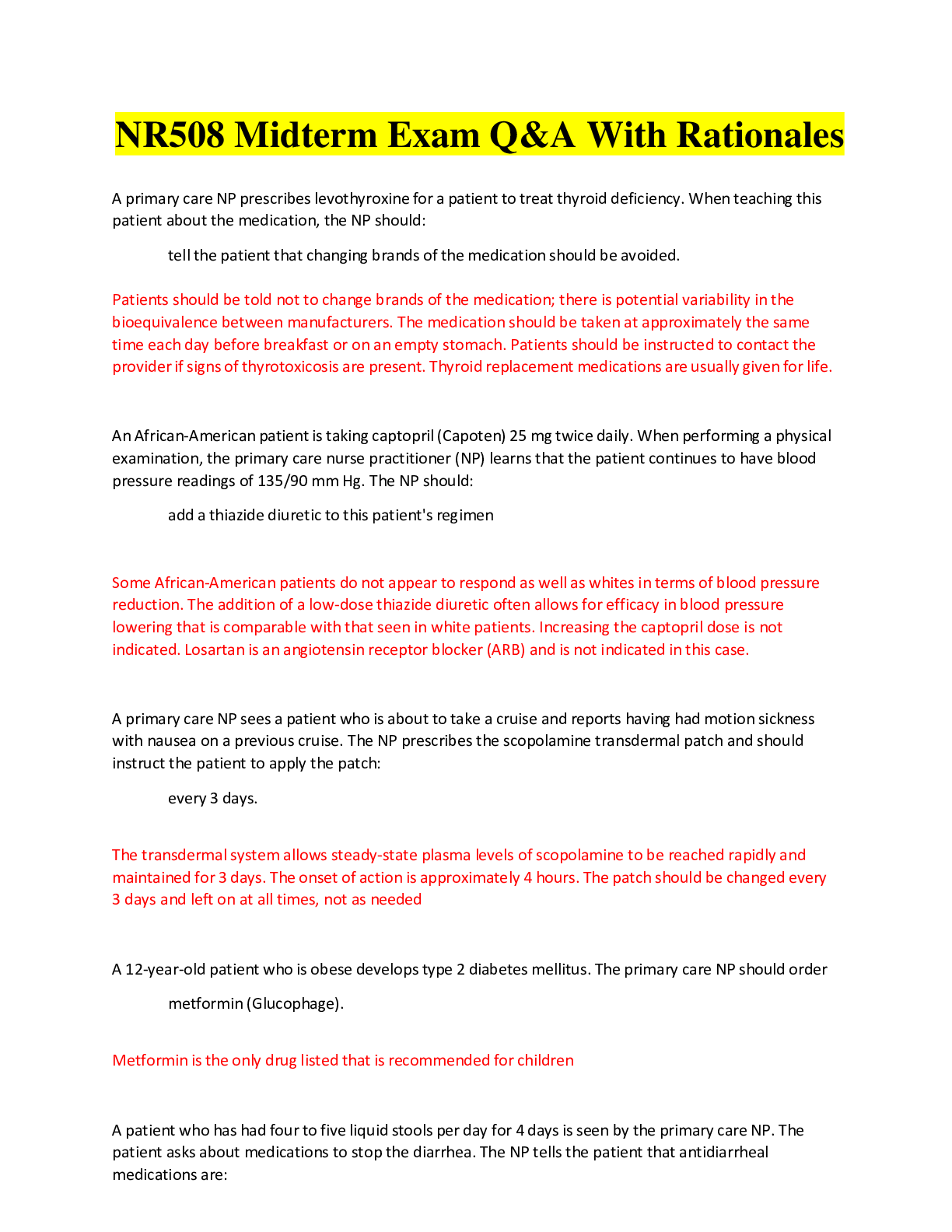
Also available in bundle (1)
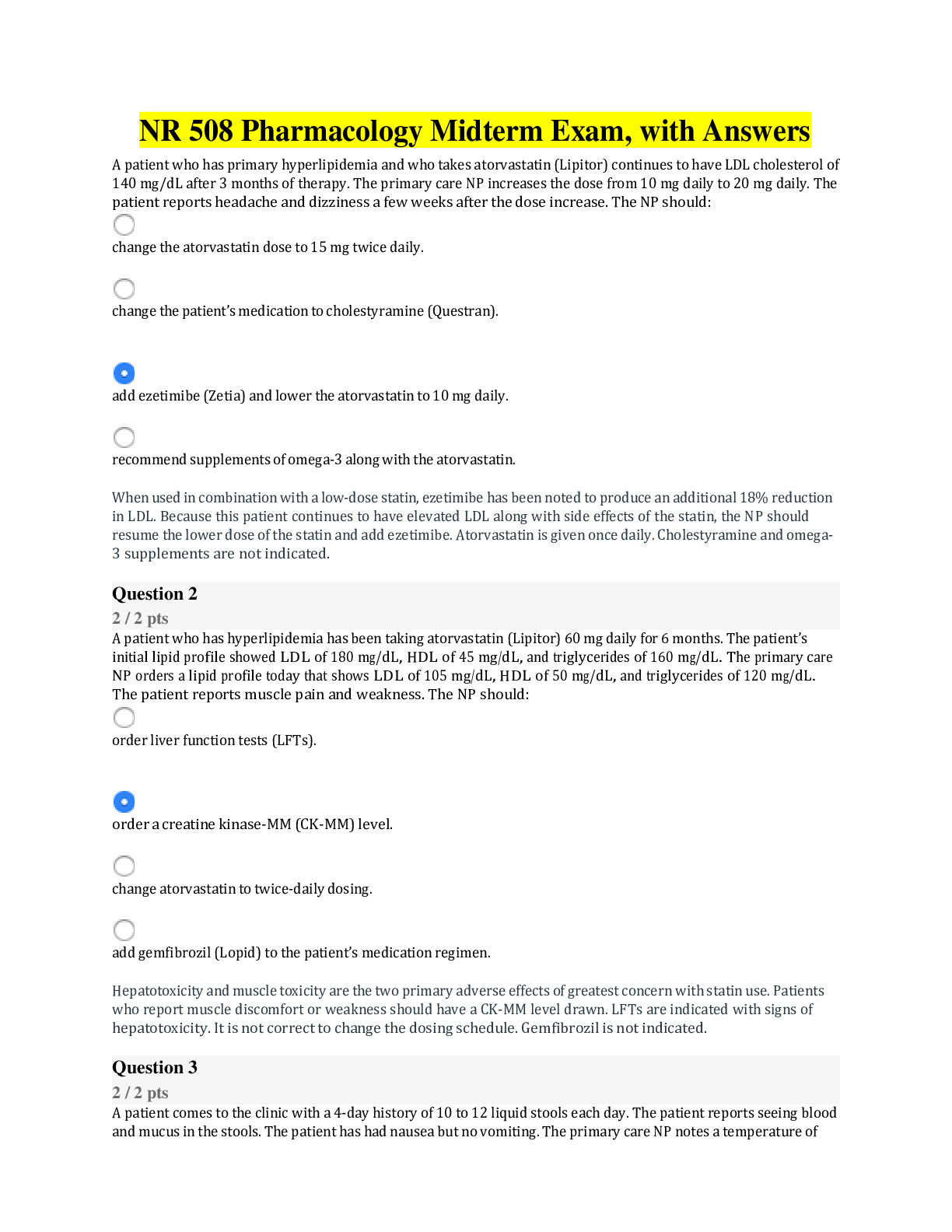
Nr 508 Final Exam Practice Q&As With Rationales, Updated: Chamberlain College of Nursing
Nr 508 Final Exam Practice Q&As With Rationales, Updated: Chamberlain College of Nursing
By PROF 2 years ago
$60.5
6
Reviews( 0 )
Document information
Connected school, study & course
About the document
Uploaded On
Aug 02, 2021
Number of pages
15
Written in
Additional information
This document has been written for:
Uploaded
Aug 02, 2021
Downloads
0
Views
58

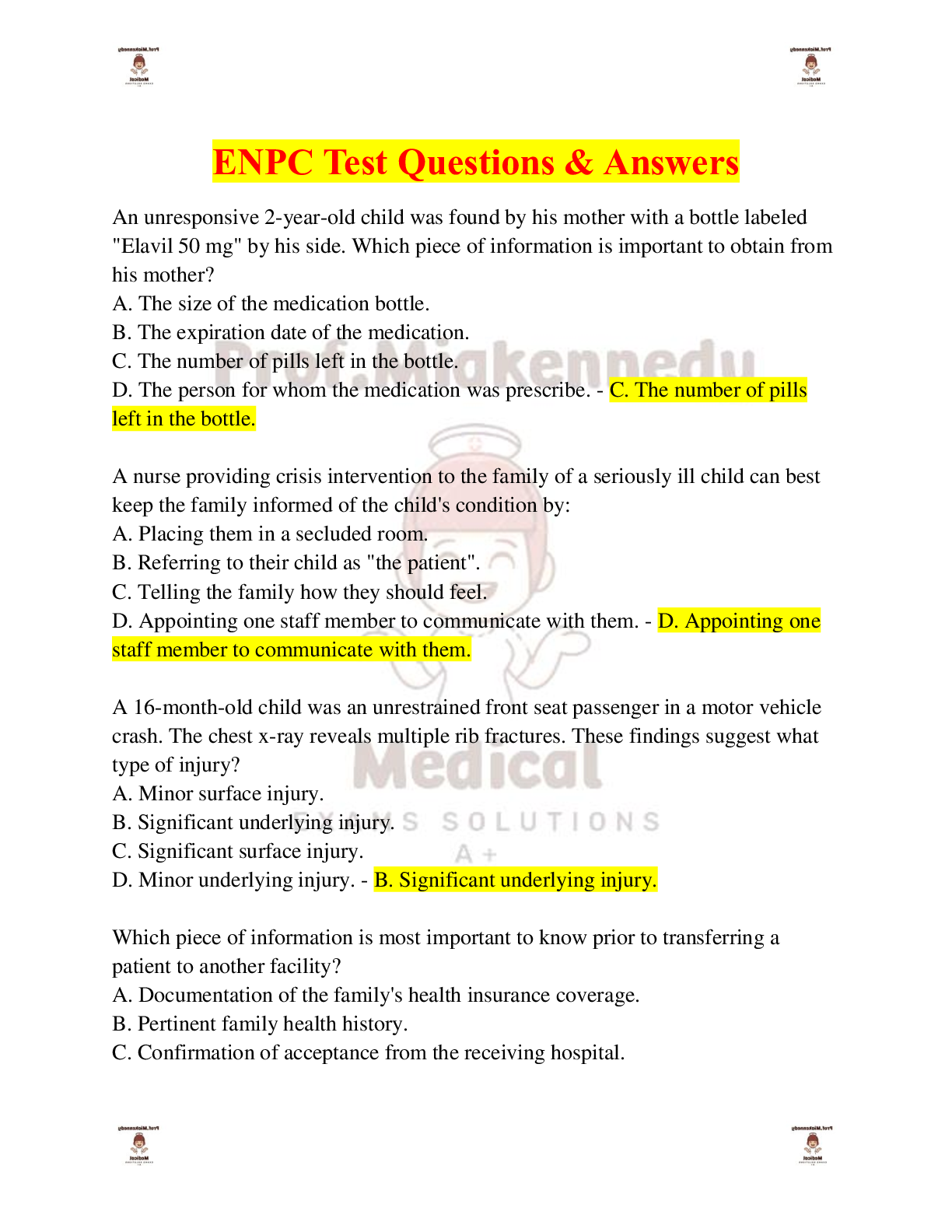
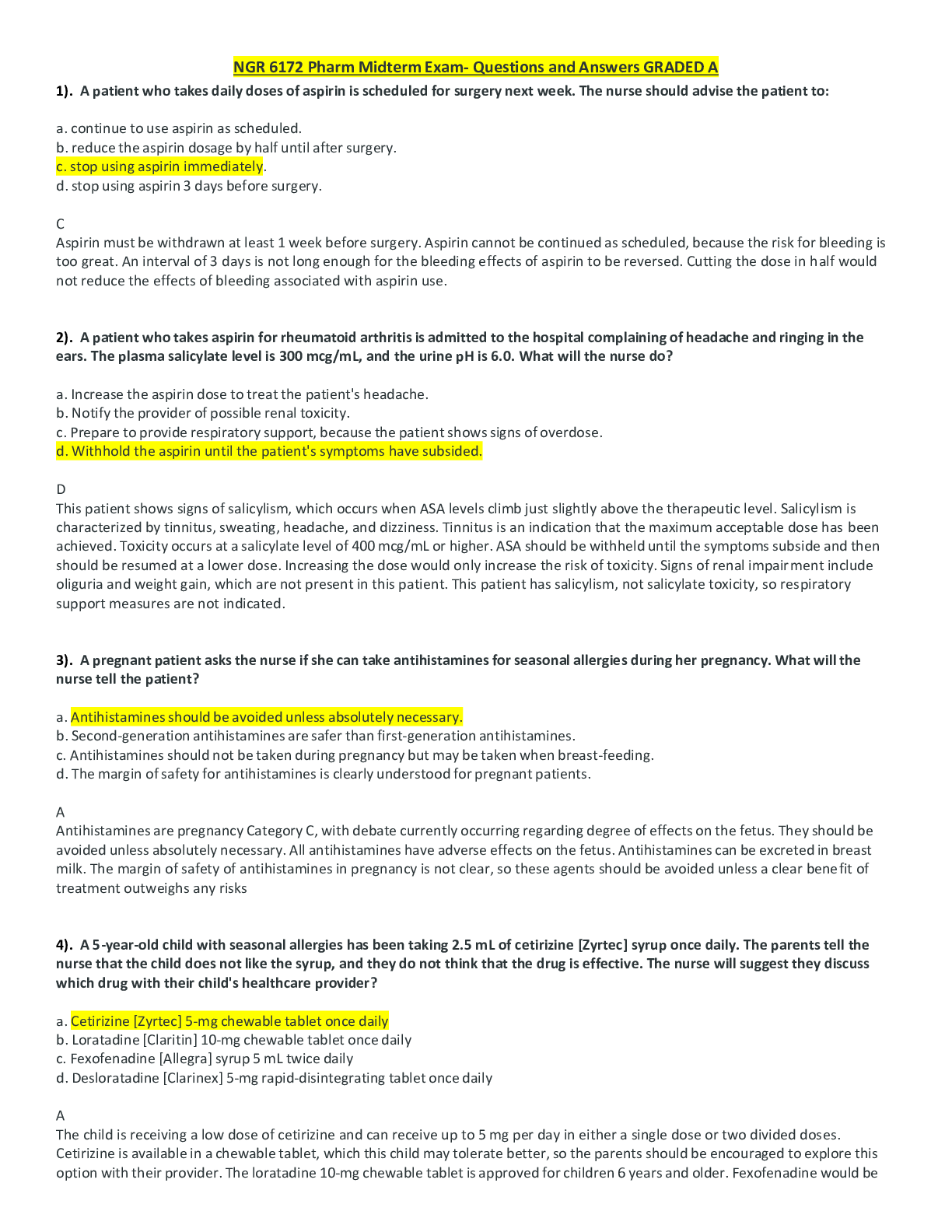
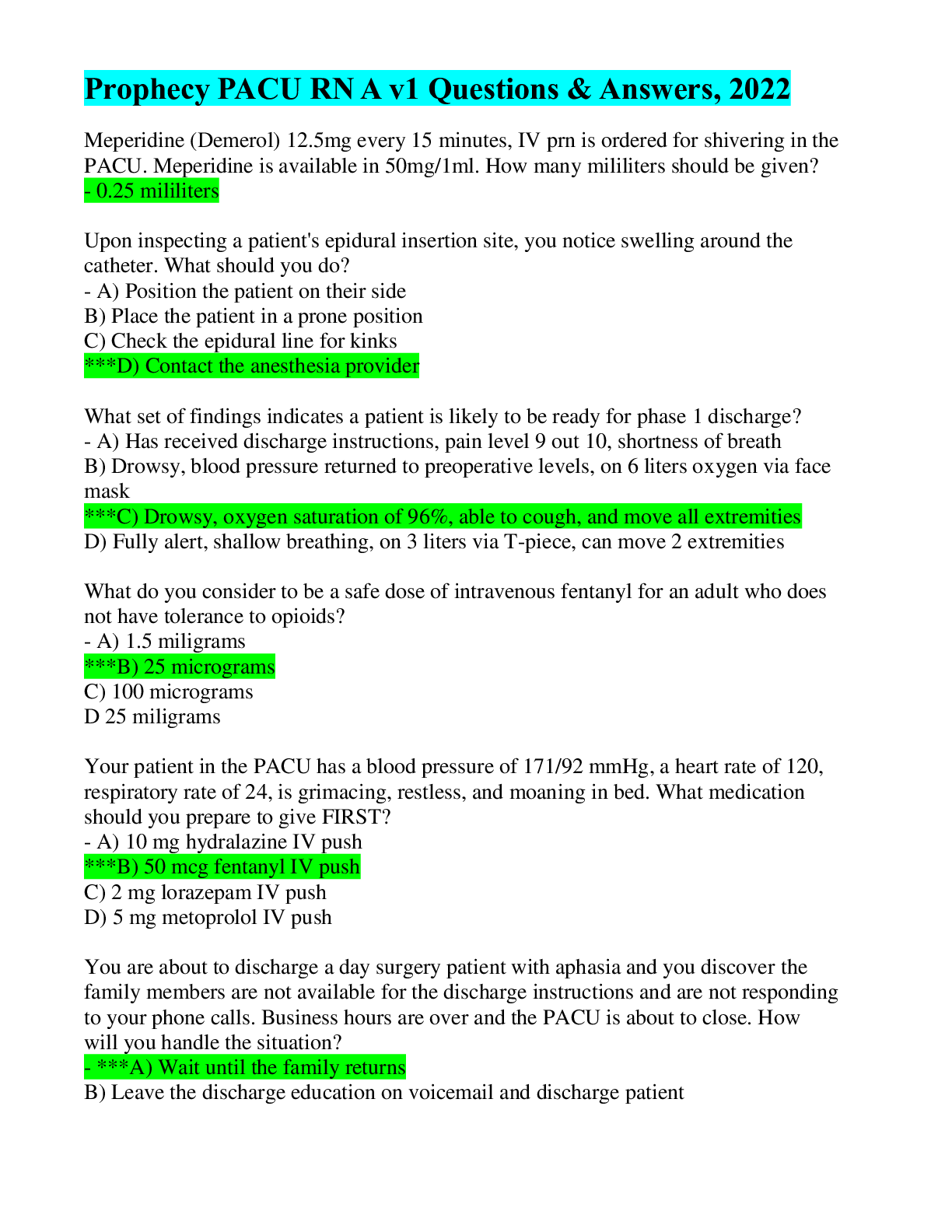
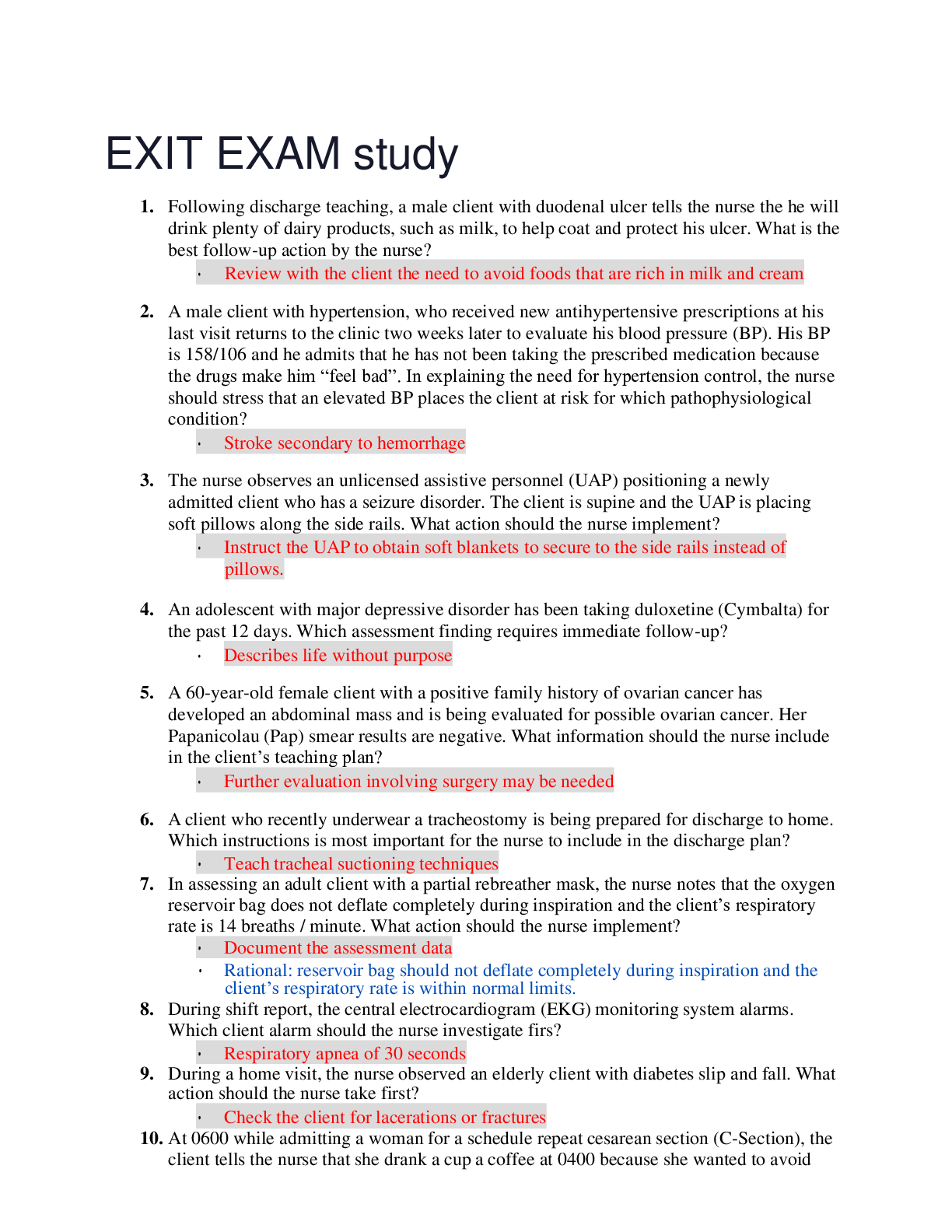
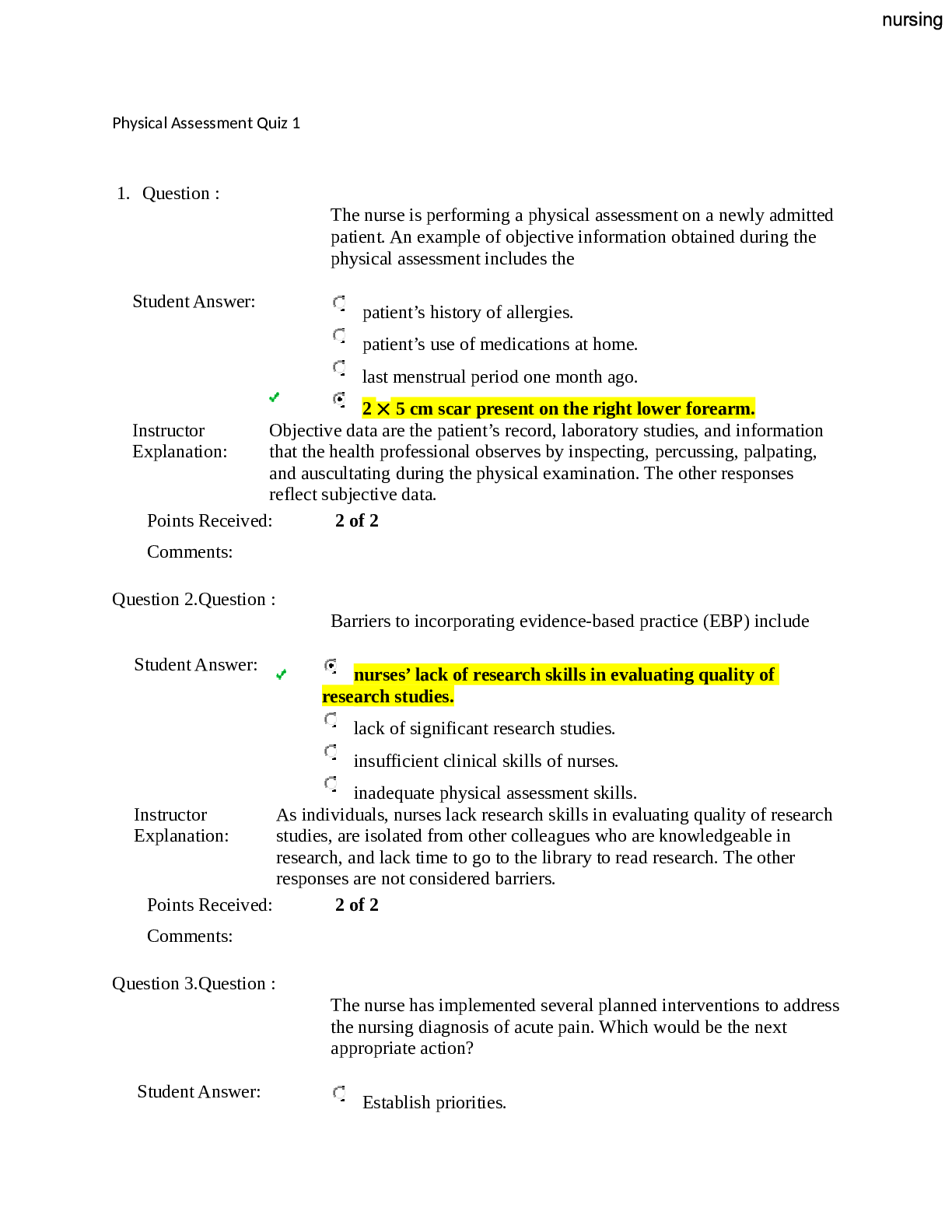
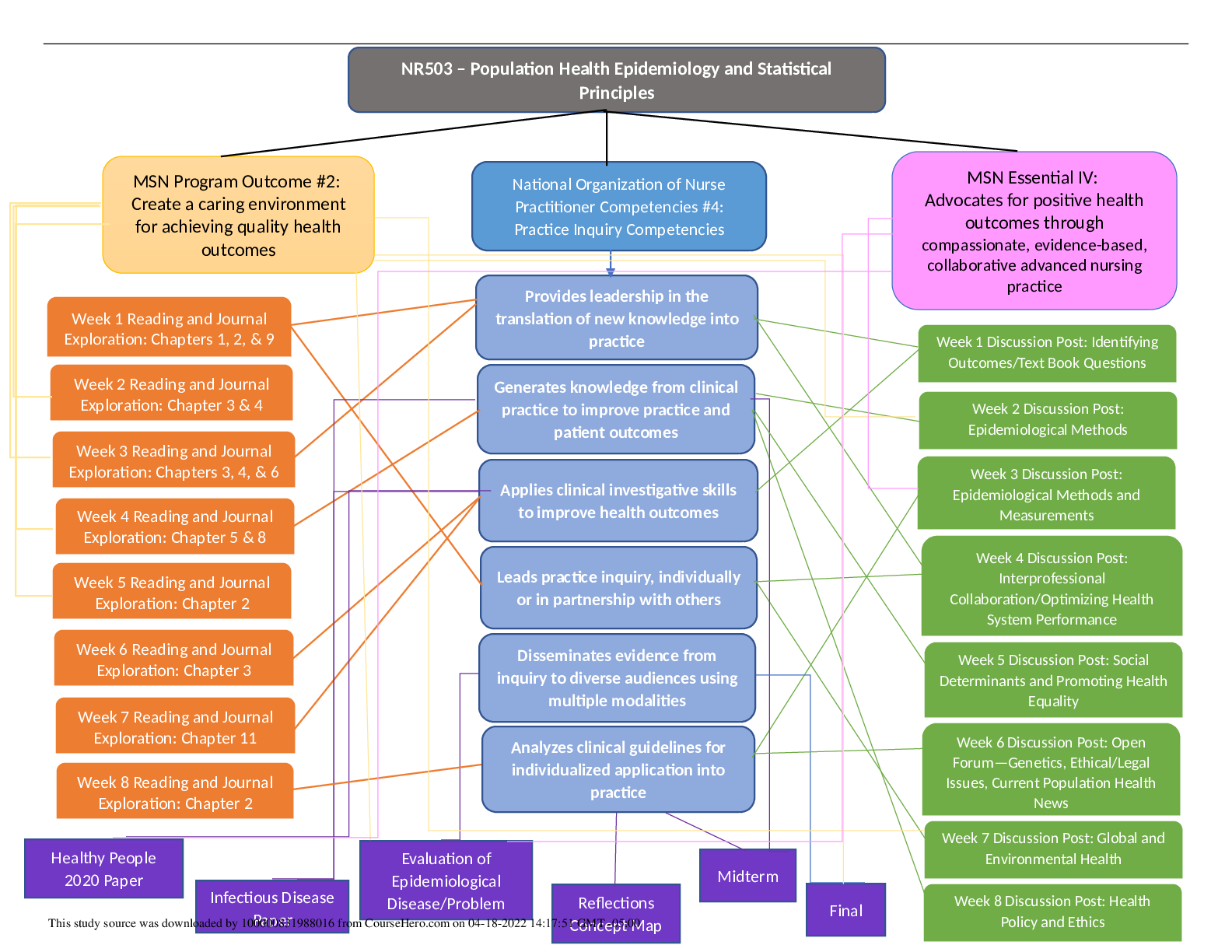

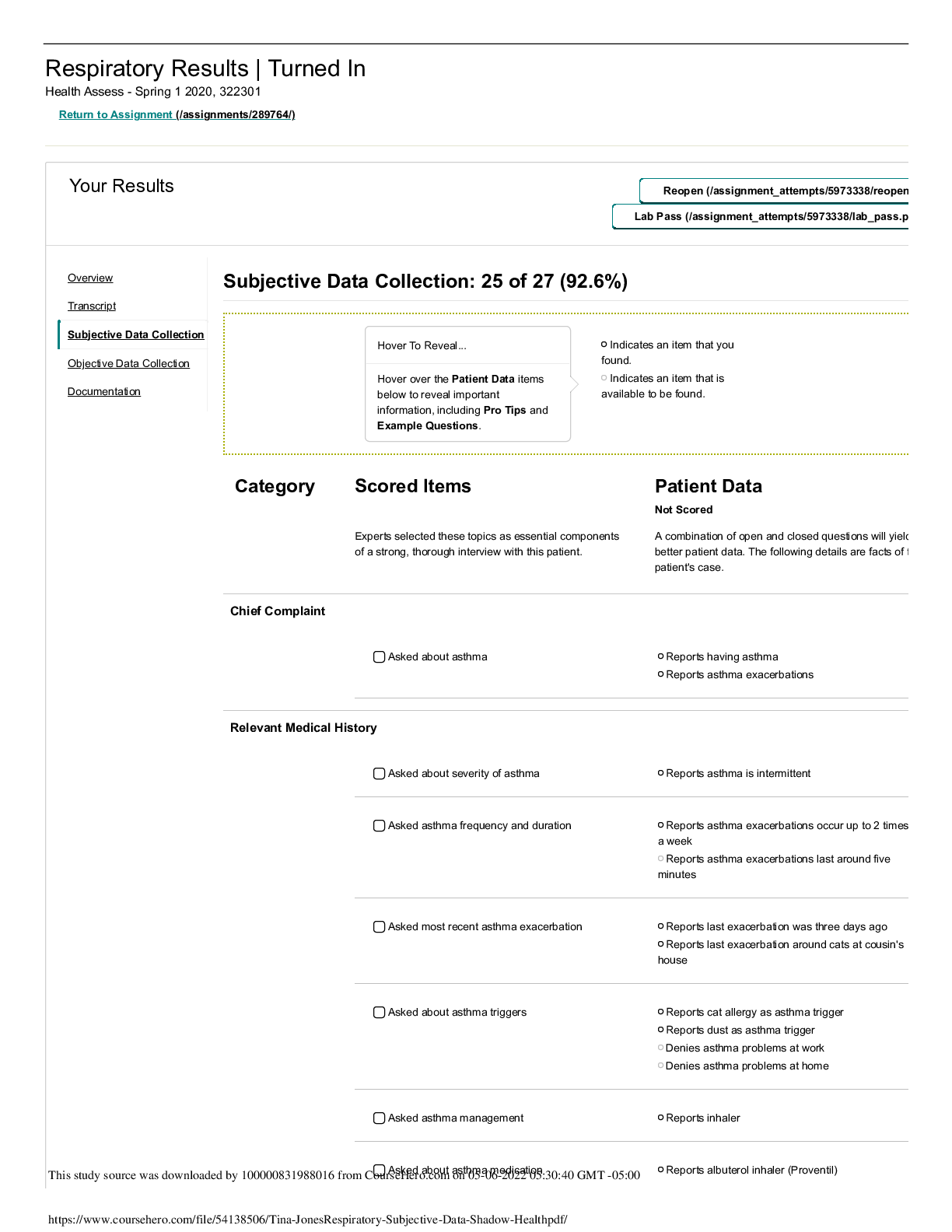


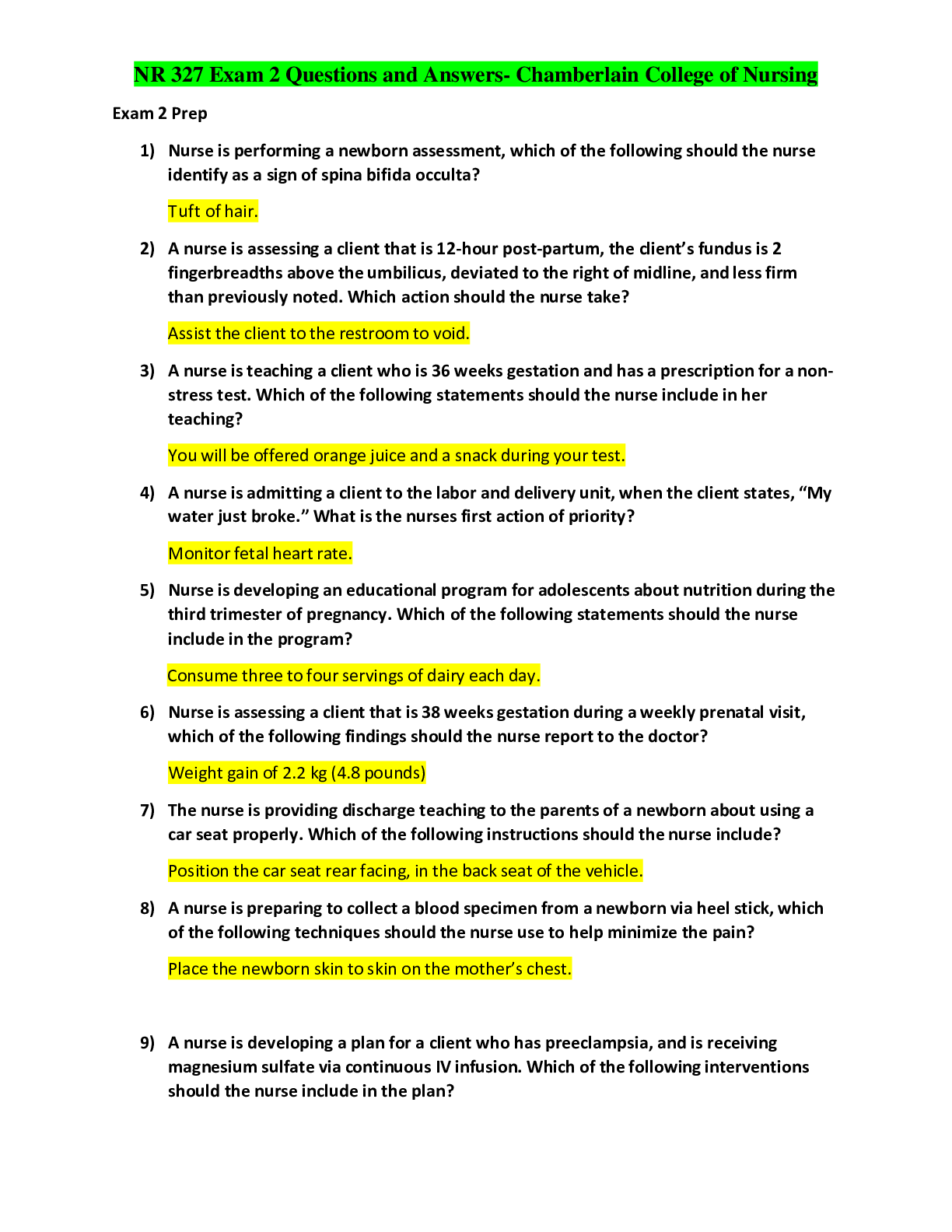

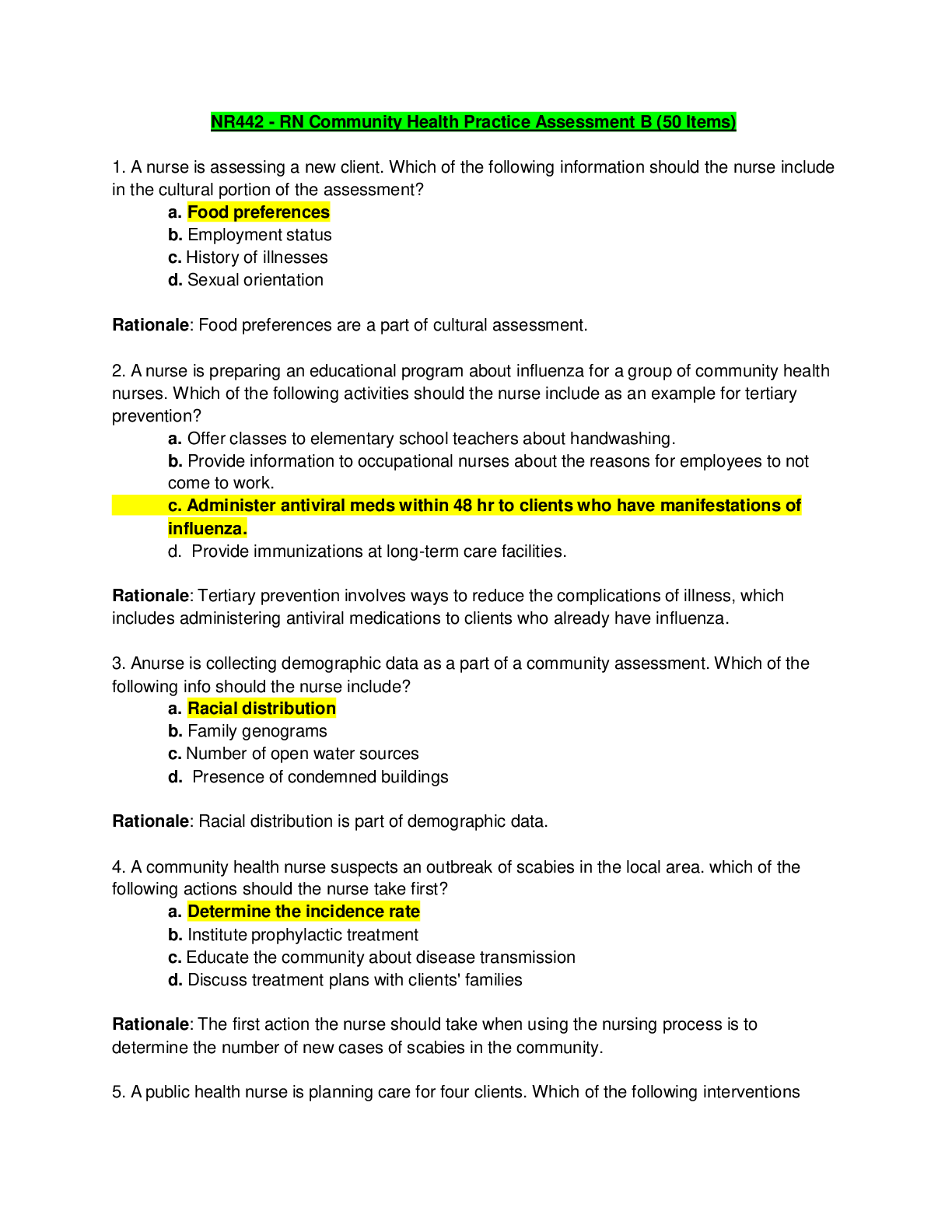


.png)
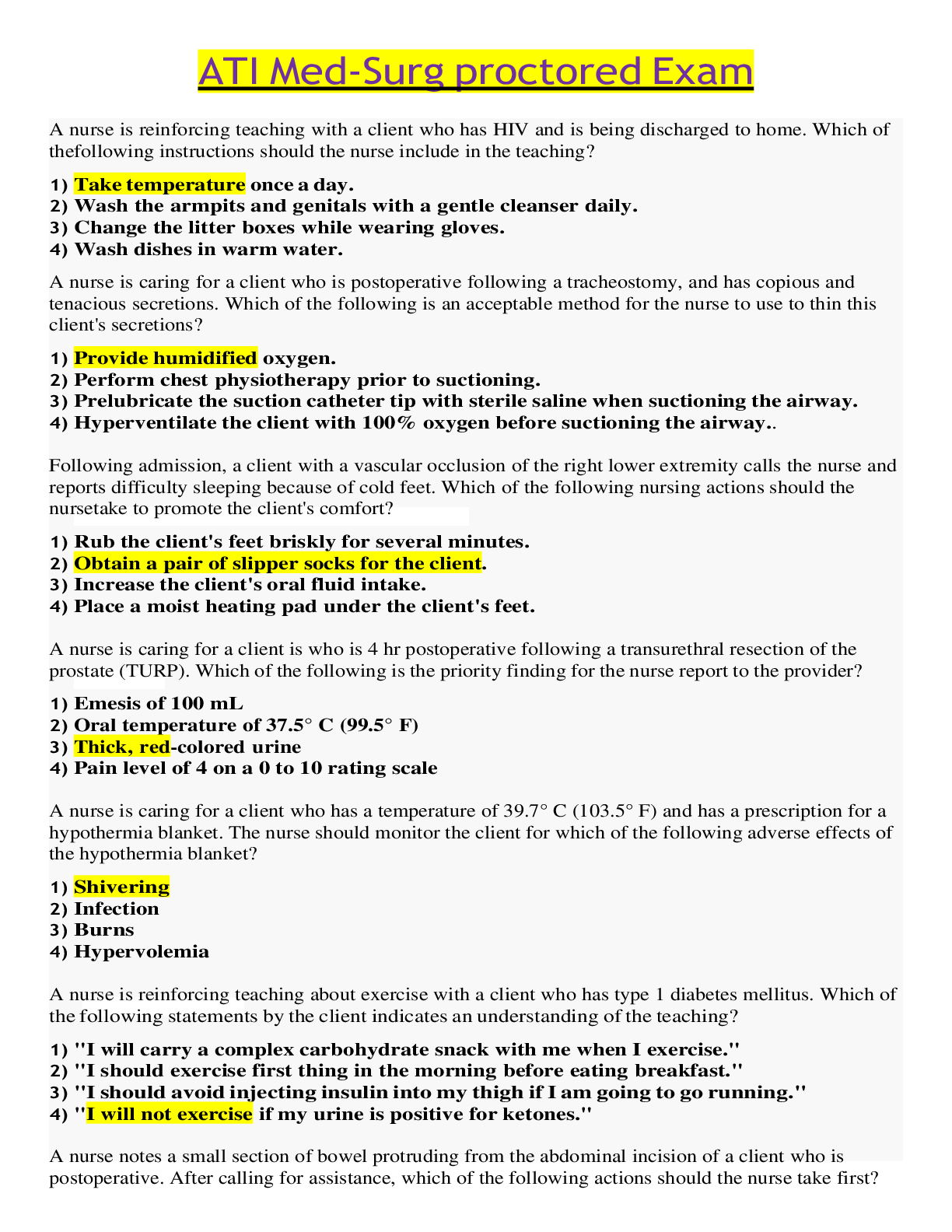
 – CHAMBERLAIN COLLEGE OF NURSING.png)
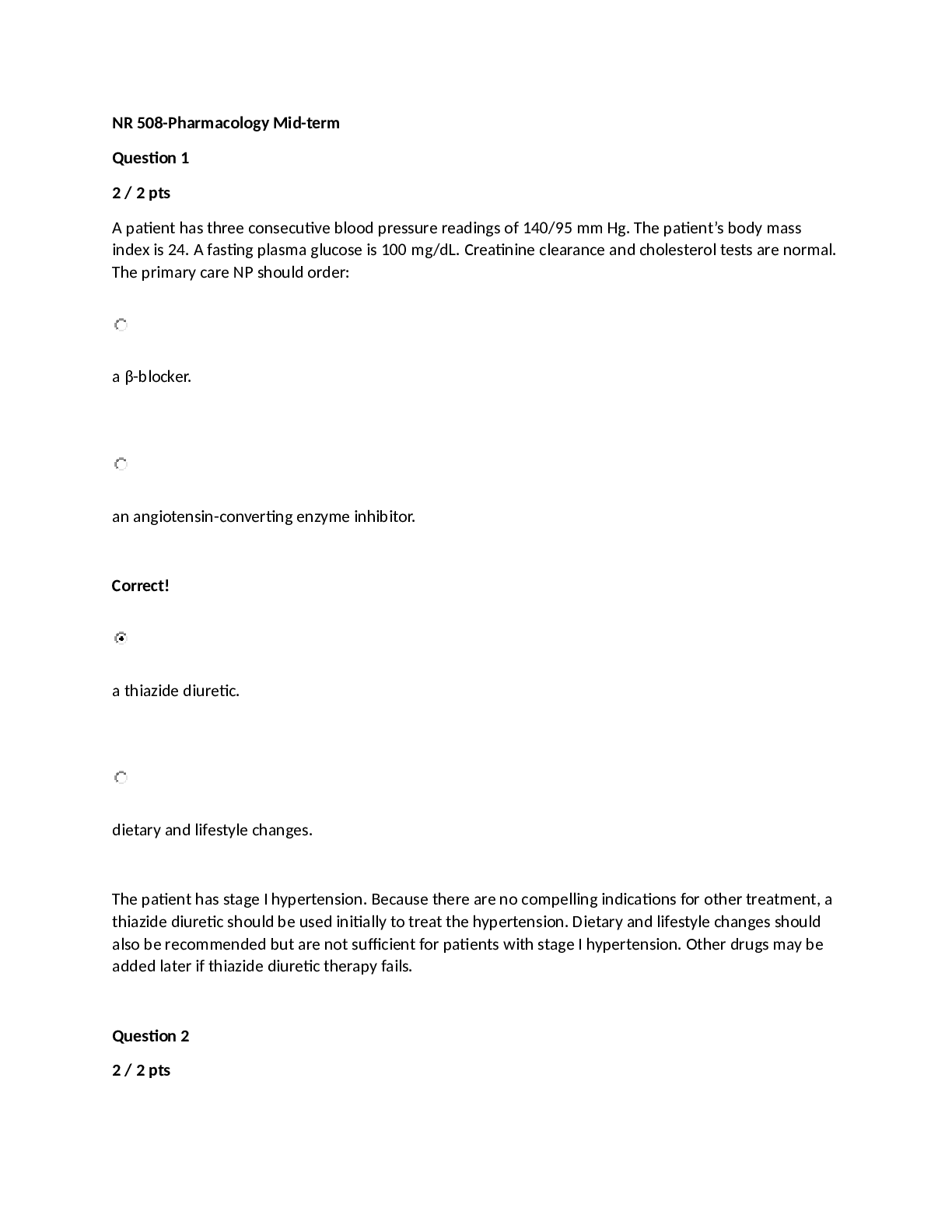
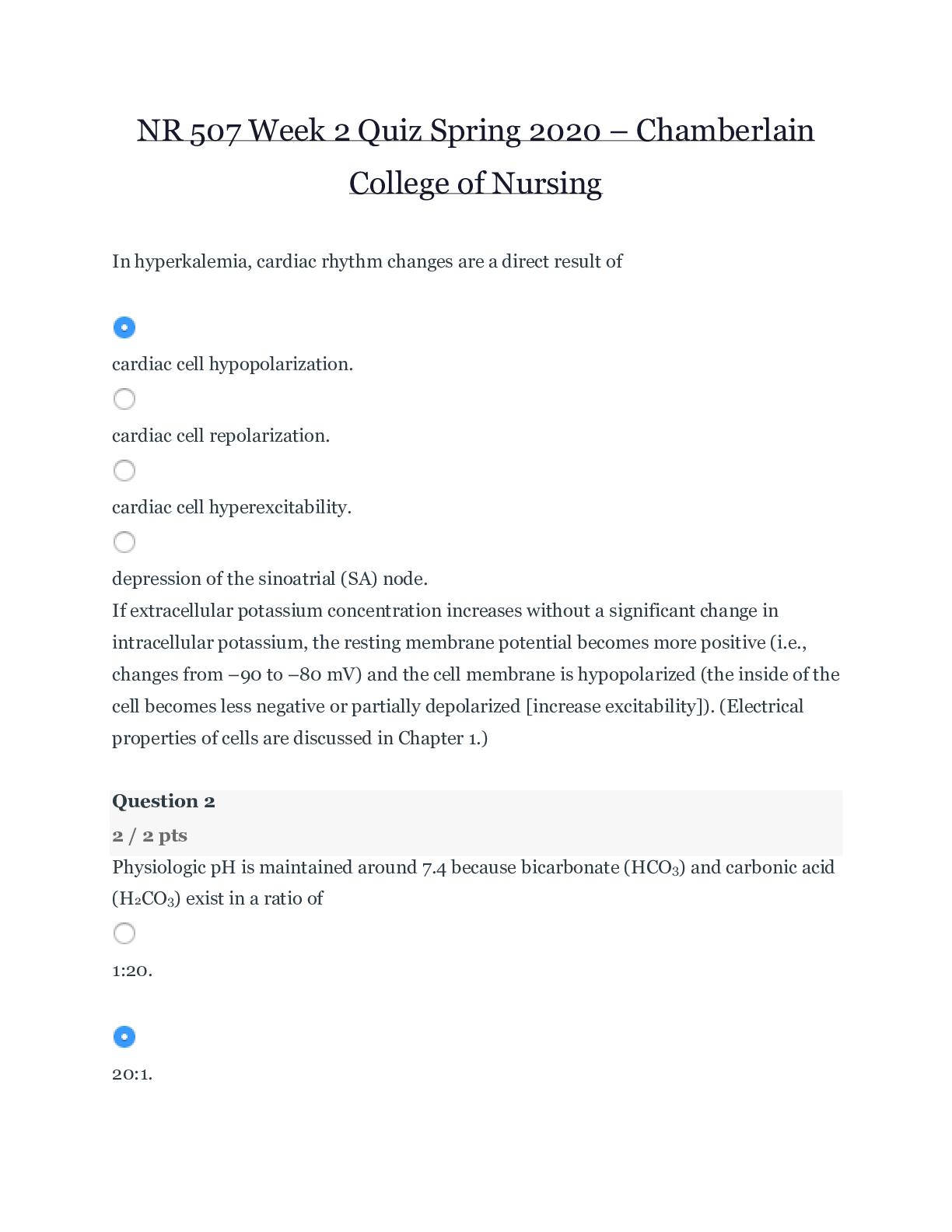

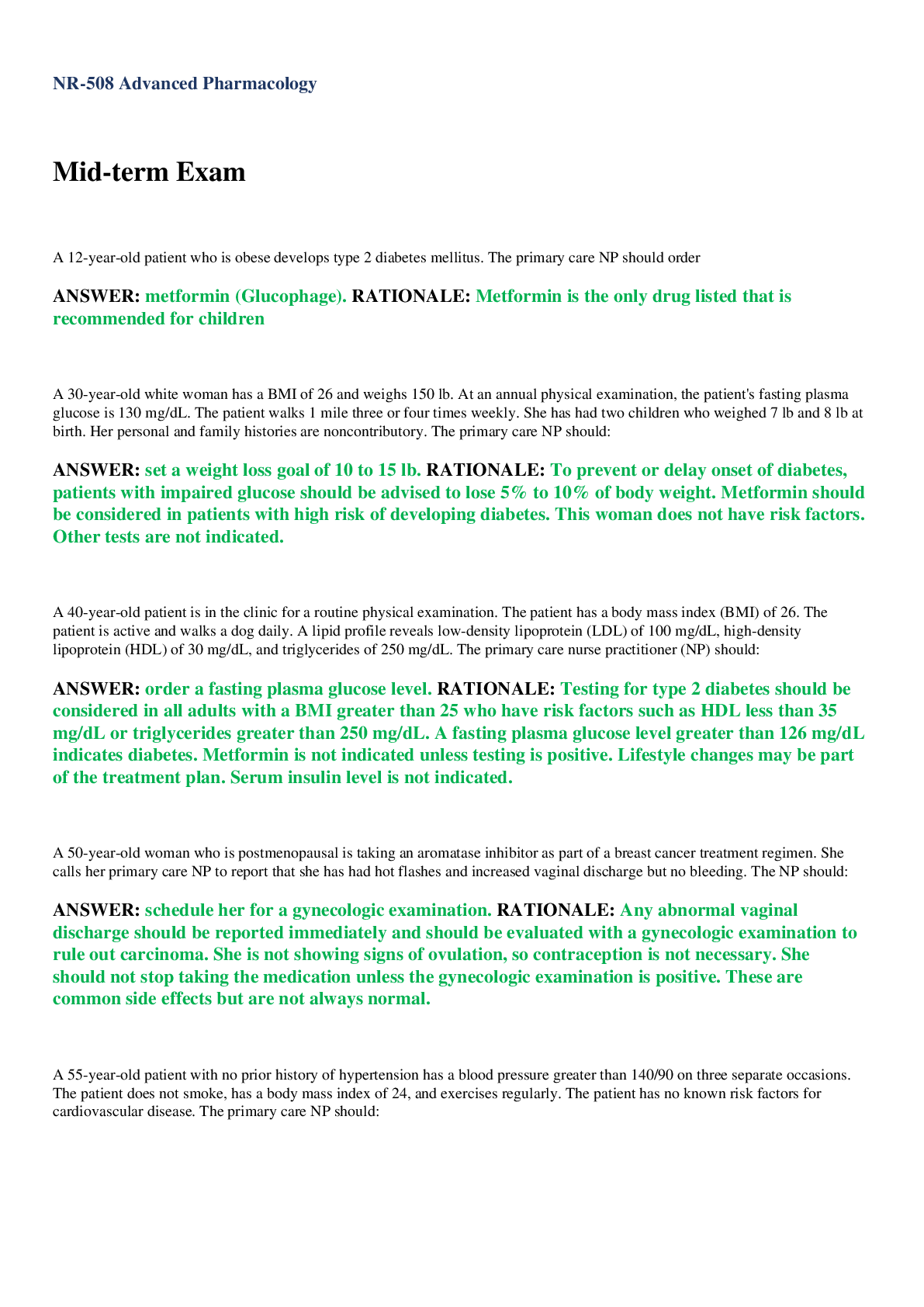
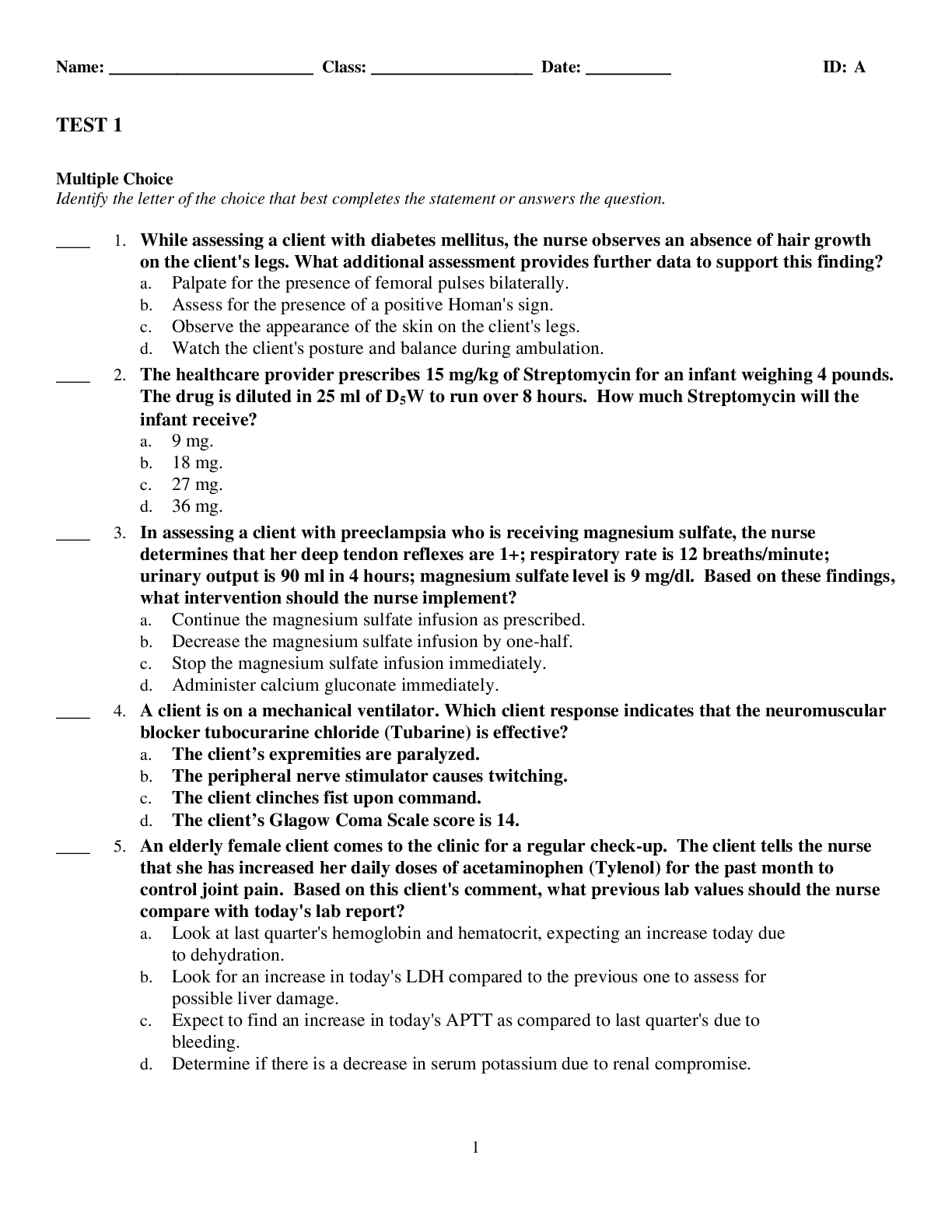
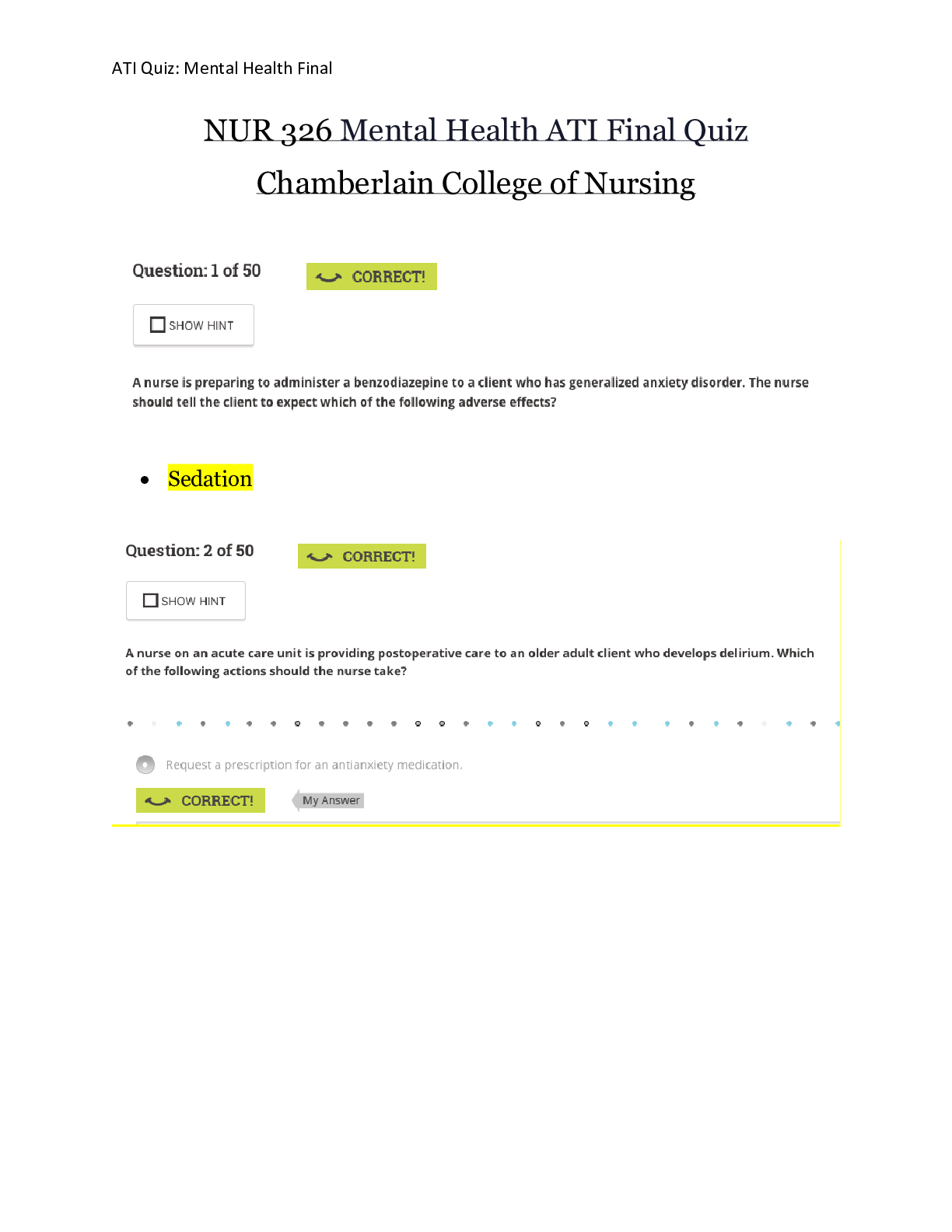


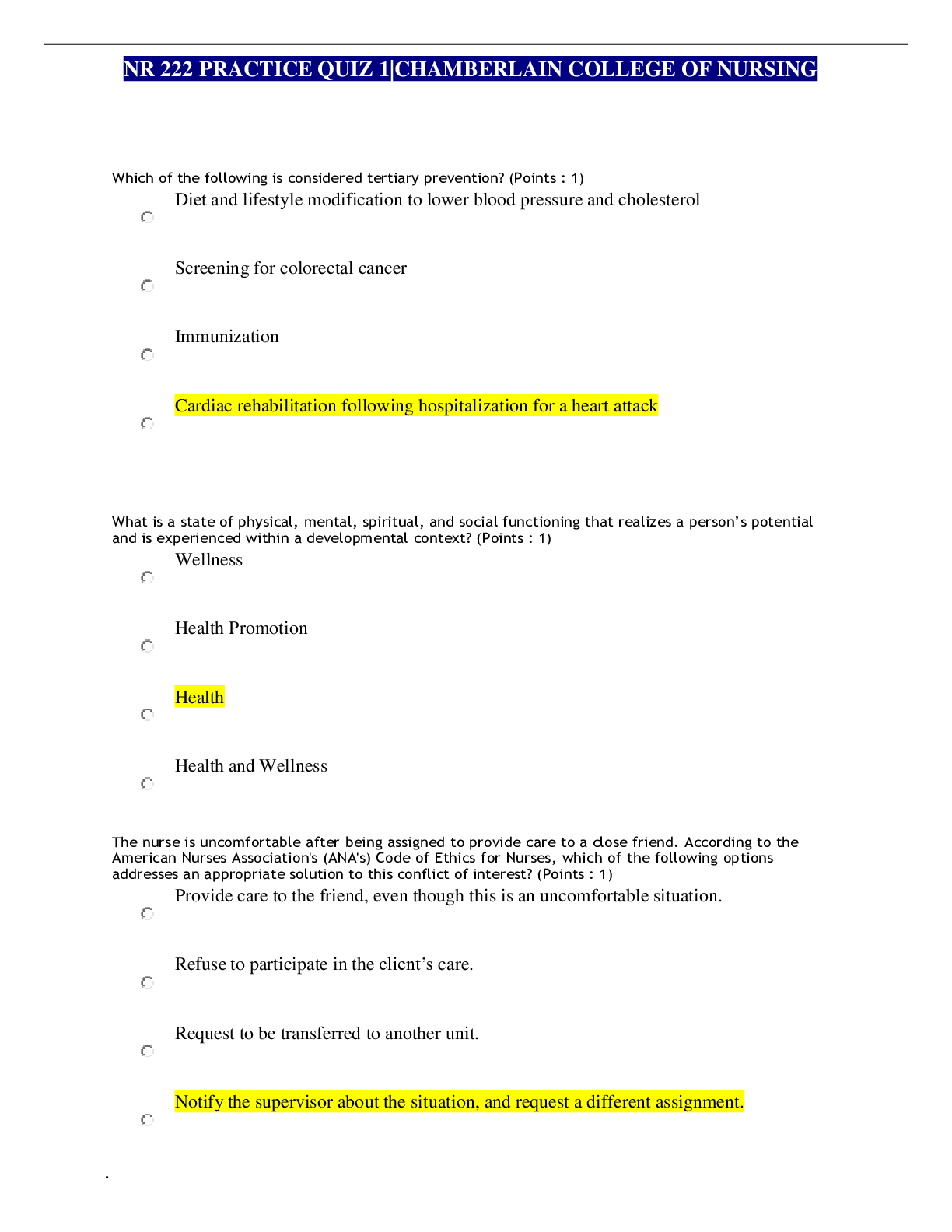

 Exam 1.png)

